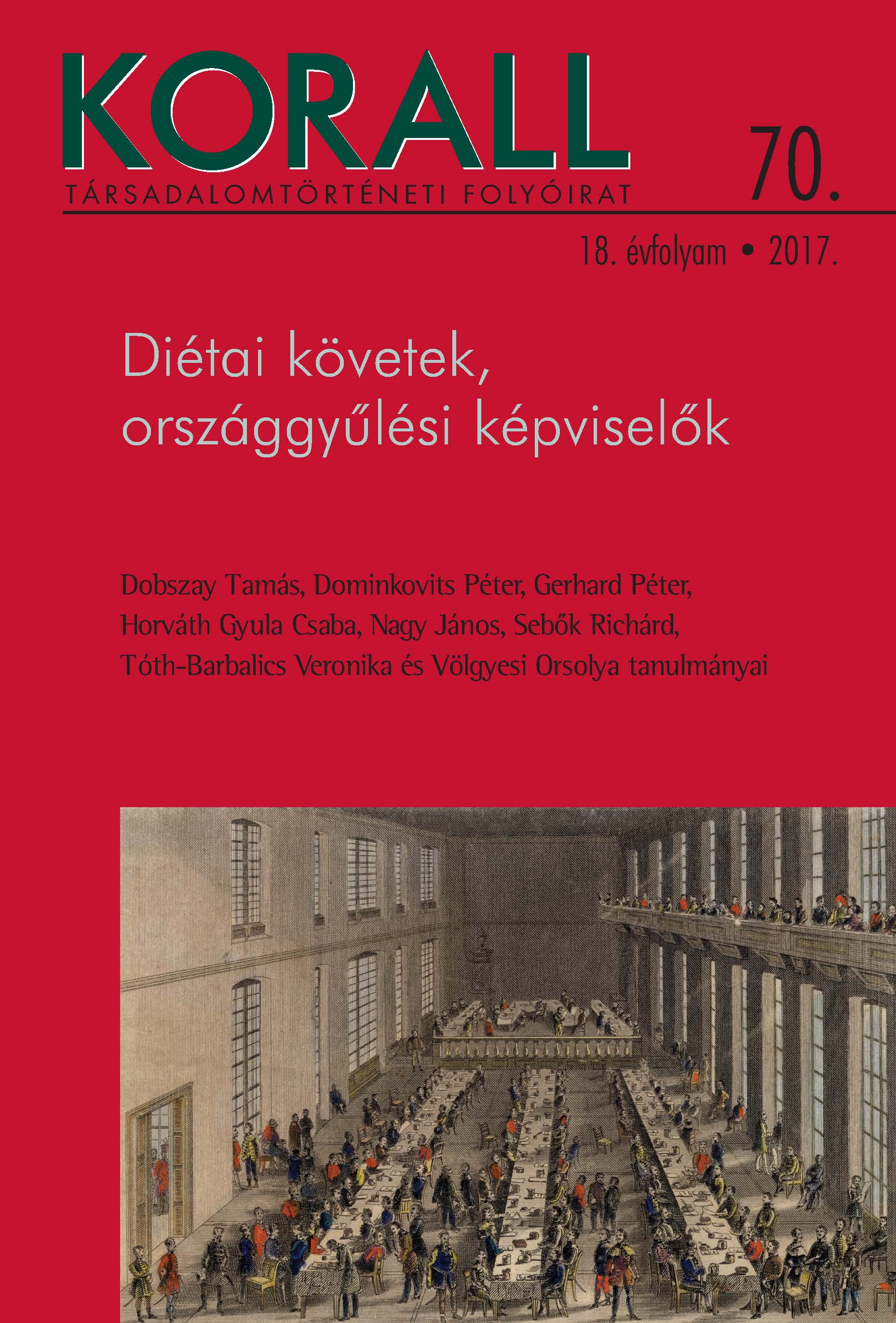„Családi különállások” vagy „egyéni érzés és hajlandóság”?
“Family Stance” or “Individual Sentiment and Will”?
The Participation and Organisation of Aristocratic Families in the Parliament in the Age of Dualism
Author(s): Veronika Tóth-BarbalicsSubject(s): Political history, Social history, 19th Century
Published by: KORALL Társadalomtörténeti Egyesület
Keywords: hungary;19th century;history;social history;
Summary/Abstract: The study examines the participation level of hereditary peers in the upper house of the Hungarian parliament, based on invitations, attendance, interpellations, named ballots and candidacy. The analysis of the number of invitations showsthat, prior to the 1885 reform of the upper house, it was possible to form a number of populous family blocks within the membership. At the same time, most of the invited members were in non-attendance, so only a few families were represented by larger groups. After the reform in 1885, the reduction of the upper house significantly curtailed the number of families who were able to form powerful blocks in the upper house debates. The analysis of the interpellations revealed that the families represented by more members – invited and in attendance – had always been more active in parliamentary discussions. Besides family affiliation, the analysis of the level of activity must also take into consideration the individual characteristics of the members. For example, before 1885, two thirds of the most active hereditary peers were comites, and as such, they represented the government’s side in debates. The reform of the upper house brought about a drastic drop in invitees from Transylvanian and indigena families, but this did not fundamentally change these families’ level of activity in the upper house. The analysis of named ballots revealed that family-based political blocks were formed only temporarily, for example, in the 1883–84 and 1894–96 debates of ecclesiastic policy bills or in the 1885 debate about the upper house reform, and they were far from being completely homogeneous. The number and persons of the hereditary peers in the upper house were stable and remained so even after the reform. The families that retained their place in the upper house were not only wealthier but also more active in their mandate commitments. The tendencies observed in the party affiliation of descendants were connected with their families’ religious affiliation and the location of their estates. Aristocrats who were members in both houses of the parliament were similarly active in debates. Aristocrats who were passive in both chambers probably assumed their mandate in the parliament in order to promote their career or enjoy some financial benefit.
Journal: Korall - Társadalomtörténeti folyóirat
- Issue Year: 2017
- Issue No: 70
- Page Range: 131-162
- Page Count: 32
- Language: Hungarian

